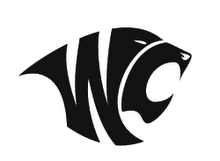The deal, which is reported to be valued at $28.1Billion certainly isn't a drop in the bucket for Verizon (VZ), but it does show just how aggressive the mobile space will be in the years to come. With an estimated 3Billion people with mobile phones worldwide, the subscriber growth curve is certainly getting to its last legs, if it isn't already there.
To paraphrase the famous Narcotics Trafficker, Stringer Bell, from the wonderful David Simon created HBO drama The Wire.
"That guy we got down at the pit working for us, now he's got the one cell phone I gave him for re-ups, and he's got another cell phone only for when the girl calls, now if a low level guy like that can have 2 cell phones, how you gonna sell any more phones? That's market saturation right there"
The above was obviously cleaned up and paraphrased, as HBO is well known for cutting edge programming and not being shy when it comes to expletives. The point is still very valid. Not every customer in the country is going to have multiple cellular phone accounts, so saturation is a big concern for Verizon and its competitors AT&T (T) and Sprint (S). So with subscriber gains mainly coming out of the pockets of other carriers the way to increase the top line is to purchase smaller regional carriers, or have the breakthrough product that most users will want and will need to have.
A lot has already been written about Verizon's unwillingness to work with Apple (AAPL) and secure the iPhone rights, essentially handing the break-through device to rival AT&T. More recently however, the company has been on the soapbox about going open with its mobile phones, even including the possibility of using Google's (GOOG) Open Source Android mobile platform on some phones. As customers in the US grow, with regards to their mobile phone usage and feature expectation it'll be up to the carrier to foster an environment of functionality, ease of use, and customizability. With the industry headed in that direction, the playing field should be level.
So when Americans emerge in a future where cell phones will be open, customizable and feature-plentiful on a seemingly level playing field, how does a carrier win? It's simple, have a bigger stick than the other guy! And in the world of mobile phones, that means more subscribers on better, faster networks. Verizon's got the network part down, but was playing second fiddle to AT&T when it came to US subscribers. With this deal, not any more. Combining Alltel's base with Verizon's will make VZ the biggest carrier in the US, couple that with it's recent win in the 700Mhz Spectrum auction and Verizon is looking to secure the face of the Wireless Nation for the next 10 years.
Alltel was taken private just last May at a price tag of roughly $27.5Billion on a combination of debt, equity and a tremendous amount of leverage. It seems the private equity partners, TPG and Goldman Sachs Capital Partners, were looking to make a quick buck here and get out while they could with even the slightest of profit, even though at current levels Verizon would be paying a reported 8 times earnings, while last year's private deal fetched 9.2 times.
While the price tag will be debated Verizon can certainly justify the purchase as it builds for its future with as many subscribers as it can. And on top of that, it now has a whole new database of addresses to send letters to recommending an upgrade of existing Internet and Television connections to Verizon's high speed FiOS, the fiber optic solution VZ has spent tons of time and even more money rolling out across the country.
Update: June 5/2008. Official aggregate deal price of $28.1Billion
Disclosure: Author is long T, does not own VZ or S
04 June, 2008
Verizon looks to a Future as the Biggest Carrier with reported Alltel buyout
Posted by
Chris Krasowski
at
6/04/2008 06:48:00 PM
![]()
Labels: AAPL, Alltel, David Simon, GOOG, HBO, iPhone, S, Stringer Bell, T, The Wire, Verizon, VZ
Subscribe to:
Post Comments (Atom)





No comments:
Post a Comment